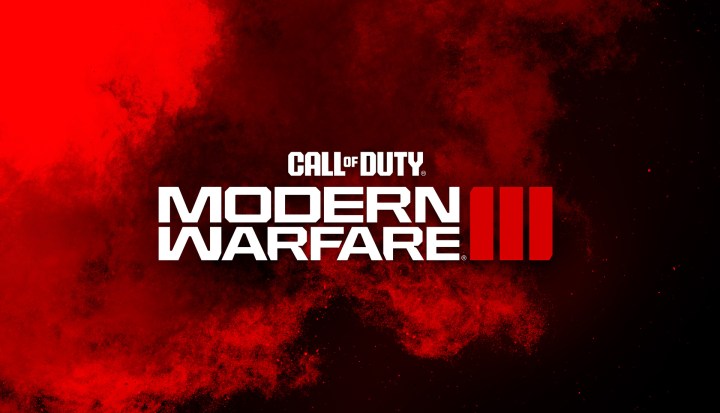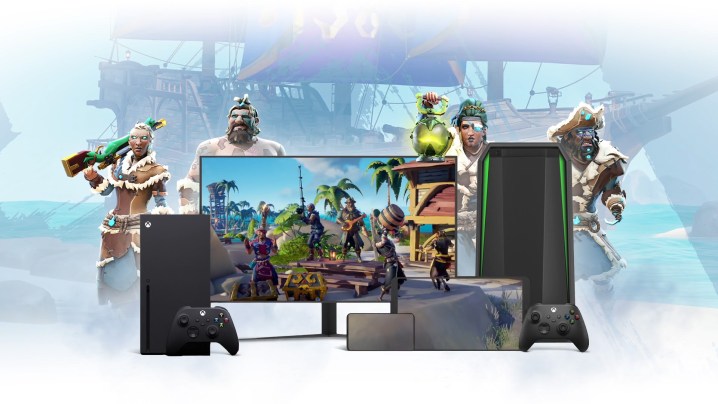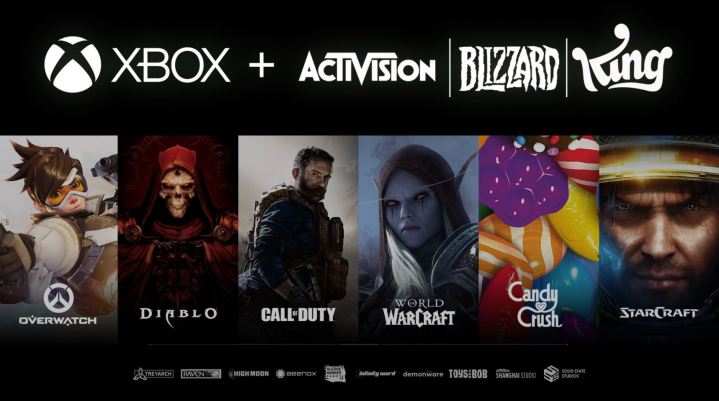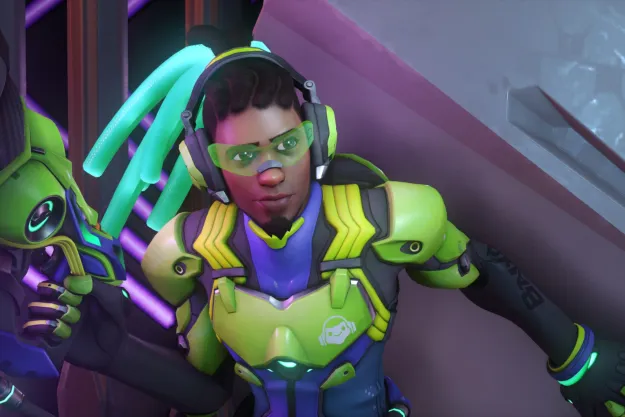Microsoft now owns Activision Blizzard. After Microsoft worked to appease regulators and fend off litigation, the $69 billion acquisition first announced in January 2022 is finally complete. Now that Activision Blizzard is officially part of Microsoft and a sister company to Xbox Game Studios and ZeniMax Media, that raises an important question: What does this acquisition mean for you as a player?
Following this acquisition, Microsoft will own more gaming studios, the availability of Call of Duty and other Activision Blizzard franchises will shift, and unionization efforts within Activision Blizzard could gain a bit more ground. If you’re wondering what happens next, here’s our thorough examination of how the deal could impact players moving forward.
Microsoft’s new game studios
With this acquisition, Microsoft will now own all the developers under the Activision Blizzard company. That includes the teams at Activision Publishing, Blizzard Entertainment, and King, the latter of which is the developer behind the wildly popular mobile series Candy Crush. The acquisition encompasses the following subsidiaries as well: Treyarch, Infinity Ward, Raven Software, Sledgehammer Games, High Moon Studios, Beenox, Toys for Bob, Activision Shanghai Studio, Solid State Studios, Demonware, Digital Legends, and Major League Gaming. Microsoft now also owns the rights to all of the games and IP Activision Blizzard previously released.

Activision Blizzard franchises referenced in the art and statements surrounding the deal’s completion include Overwatch, Tony Hawk’s Pro Skater, Candy Crush, Starcraft, Crash Bandicoot, Call of Duty, Warcraft, Diablo, Pitfall, Farm Heroes, Guitar Hero, River Raid, Kaboom, and MechWarrior. Activision Blizzard will continue to function independently post-acquisition, just like ZeniMax, but will still have to report to Head of Xbox and CEO of Microsoft Gaming Phil Spencer.
Activision Blizzard CEO Bobby Kotick will remain in that position until the end of 2023, saying in an email and public statement that Spencer asked him to so there’s “a smooth integration for our teams and players.” Effectively, this raises the number of Xbox developers from 23 to 38, although some of Activision’s developers have multiple teams or just serve as support studios. In an email to Xbox employees following the acquisition’s closure, Spencer confirmed that he would visit Activision, Blizzard, and King’s offices over the coming weeks.
Xbox exclusivity
Of course, the most pressing question that was the center of much debate during the Federal trade Commission’s (FTC) trial is the exclusivity of Call of Duty following the acquisition. Microsoft promises that new Call of Duty games will launch across PC, PlayStation 4, PS5, Xbox One, and Xbox Series X/S. Microsoft previously voiced its intention to keep Call of Duty on PlayStation and finally signed a deal with Sony over the weekend. “We are pleased to announce that Microsoft and PlayStation have signed a binding agreement to keep Call of Duty on PlayStation following the acquisition of Activision Blizzard. We look forward to a future where players globally have more choice to play their favorite games,” Spencer tweeted.

So, we can expect Call of Duty on PlayStation for years to come. On top of that, Microsoft signed a similar agreement with Nintendo to bring Call of Duty to Switch and future Nintendo platforms over the next 10 years. You can also expect Call of Duty to come to Steam, even though Valve declined to sign a deal with Microsoft to commit to that. Exclusivity discussions get murkier regarding Activision franchises that aren’t Call of Duty, as that’s the only franchise PlayStation’s deal covers.
In court, Xbox did not have to make the same commitments for other Activision Blizzard franchises like Diablo, Overwatch, Crash Bandicoot, and Spyro as it did with Call of Duty, so technically, there is a possibility some of those could go exclusive, although that’s just speculation at this time. In the Xbox Wire post announcing that the acquisition was complete, Spencer made the following statement about his vision for the availability of Activision Blizzard’s future games: “Together, we’ll create new worlds and stories, bring your favorite games to more places so more players can join in, and we’ll engage with and delight players in new, innovative ways in the places they love to play, including mobile, cloud streaming and more.”
Based on how Xbox treated already released ZeniMax games after that acquisition, though, expect games like Overwatch 2, Diablo IV, and Crash Team Rumble to continue support across all platforms. Whenever Activision Blizzard releases something new that’s not connected to any preacquisition deals, it’s possible that such a game will be an Xbox exclusive. That’s a situation we probably won’t have to deal with for a few years, though, so in the immediate future, this acquisition shouldn’t push the console exclusives needle significantly.
Activision Blizzard’s cloud gaming future
It’s also more likely that Activision Blizzard games will come to cloud gaming services following this acquisition, although Microsoft won’t be the company in control of that. Throughout the acquisition process, Microsoft publicly made deals with Nvidia, Boosteroid, Ubitus, and EE to support their cloud services with games. To get the U.K.’s Competition and Markets Authority (CMA) to approve the acquisition, it had to give the cloud gaming rights for Activision Blizzard games over to Ubisoft.

So, while it’s likely that we’ll see an increase in Activision Blizzard games on cloud services in the coming years, Ubisoft will technically be the company controlling that. “The deal includes all the Activision Blizzard games that are being distributed today and includes all the games that Activision Blizzard will release over the next 15 years,” Chris Early, Ubisoft’s vice president of Strategic Partnerships and Business Development, explained in a blog post. “That includes the Call of Duty franchise and a whole lot more. Yes, it does include all the DLC, including in-game content and downloadable DLC packs, expansions, and add-ons.”
In addition to the cloud gaming services mentioned above and Xbox Cloud Gaming, Ubisoft will bring Activision Blizzard’s games to its Ubisoft+ service. We don’t have an exact date for that yet, though. “We will take the time we need to make sure that the back end fully supports the experience we want players to have,” Early explained. “Now that the deal is closed, the operational element can begin to kick off.”
Activision Blizzard games on Xbox Game Pass
Yes, you can expect many of Activision Blizzard’s games to come to Xbox Game Pass, although that won’t happen immediately. Ahead of the acquisition’s closure, Activision Blizzard explained on X (formerly Twitter) that games like Call of Duty: Modern Warfare III aren’t coming to Xbox Game Pass on day one and that fans must be patient about its titles coming to the service.

“It’s awesome to see anticipation building for Call of Duty: Modern Warfare III. As we continue to work toward regulatory approval of the Microsoft deal, we’ve been getting some questions whether our upcoming and recently launched games will be available via Game Pass,” the tweet says. “While we do not have plans to put Modern Warfare III or Diablo IV into Game Pass this year, once the deal closes, we expect to start working with Xbox to bring our titles to more players around the world. And we anticipate that we would begin adding games into Game Pass sometime in the course of next year.”
Spencer’s Xbox Wire post and email to the developers at Microsoft’s gaming studios reflected this sentiment. “Today, we start the work to bring beloved Activision, Blizzard, and King franchises to Game Pass and other platforms. We’ll share more about when you can expect to play in the coming months.”
Activision Blizzard workers can now unionize
Even since reports about Activision Blizzard’s workplace misconduct emerged in 2021, there have been unionization efforts at its studios. While a Raven Software union has formed, Activision Blizzard puts a lot of effort into stamping out unionization efforts at companies like Blizzard Entertainment. From hiring an anti-union firm to allegedly engaging in union-busting practices, it’s clear that Activision Blizzard management does not want to deal with a union.

Under Microsoft’s leadership, though, the Activision Blizzard unions have a much better chance of thriving. In June 2022, Microsoft pledged that “employees have a legal right to choose whether to form or join a union.” Microsoft also said it is “committed to creative and collaborative approaches with unions when employees wish to exercise their rights, and Microsoft is presented with a specific unionization proposal.”
Sixty days after Activision Blizzard is a part of Microsoft, it will have to follow those same guidelines, which has emboldened Raven Software’s union and potentially gives Blizzard Entertainment workers the chance to unionize if they want. It is worth noting once again that Kotick will stay with the company through the end of 2023 despite the accusations concerning him and his management of the company. Still, union organizations like the Communication Workers of America seem optimistic about the implications of this acquisition.
“It is a new day for workers at Activision Blizzard. Over two years ago, workers at Activision Blizzard’s studios captured the country’s attention through walkouts and other protests over discrimination, sexual harassment, pay inequity, and other issues they were facing on the job,” CWA President Claude Cummings Jr. said in a press release. “Their efforts to form unions were met with illegal retaliation and attempts to delay and block union elections. Now, these workers are free to join our union through a fair process without interference from management. Microsoft’s high-road approach should be the norm across the industry.”
Can the acquisition be undone?
While the Activision Blizzard acquisition has technically gone through, the litigation surrounding it isn’t over just yet. The FTC is still appealing Judge Jacqueline Scott Corley’s decision. To get a sense of the legal future of this deal, we reached out to the firm Sam Castree Law, which specializes in video game law. It’s founder told us the merger could be undone if the FTC wins its case on appeal, but that’s unlikely to happen.

“Given the vertical nature of the merger and the fact that Microsoft is already planning to be kind of hands-off with Activision, it certainly wouldn’t be the hardest thing to undo. Judge Corley said something to this effect in her opinion,” Sam Castree explained. If that were to happen, Castree does not believe the merger getting undone would cause a ton of fiscal damage. If it doesn’t make any thorough changes to Activision Blizzard’s staff, Microsoft would just have to give back the stock and money it purchased. Ultimately, though, Castree believes this will all stay hypothetical.
“The new status quo will be that Microsoft owns Activision. Absent a countervailing reason, courts are sometimes hesitant to upset the status quo,” Castree says. “Given the public interest and scrutiny given to this case, the potential public backlash from the FTC suddenly pulling the rug out from under Microsoft is likely weighing in the back of people’s minds. That’s not the only concern, of course, but it’s probably an unspoken factor. And Judge Corley did rule that the FTC was not likely to succeed. And the 9th Circuit Court of Appeals declined to block the merger while the appeal was in progress. While the merger could possibly be undone ever after it’s complete, it is indeed very unlikely for this deal to be undone once it actually happens.”
So, as of now, the Activision Blizzard acquisition has gone through and will stay that way. While it’s monumental for the industry, in the short term, the purchase might not impact you much unless you use many cloud gaming services. Expect to see more Activision Blizzard titles on Xbox Game Pass and other cloud gaming services in the coming months and for the acquisition to create an industry power shift in the future.
For now, casual gamers will be OK playing Call of Duty on Xbox or PlayStation as usual.
Editors' Recommendations
- Microsoft finally closes its $69B Activision Blizzard acquisition
- Microsoft gives Activision Blizzard cloud gaming rights to Ubisoft
- Microsoft beat the FTC. Here’s what the controversial court ruling means for Xbox
- FTC v. Microsoft: 5 surprising revelations from the court hearing that you need to know
- Microsoft’s $69B Activision Blizzard deal temporarily blocked in U.S.




